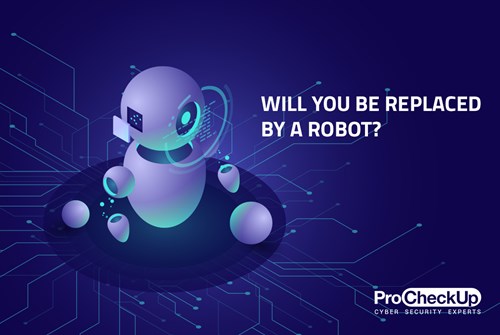Imagine waking up on a Monday morning 100 years from now. What do you imagine?
Would your job still exist? Or have you been replaced by a robot which quite frankly, is better at it? If so, what sort of job do you imagine yourself doing instead that couldn’t be done better by a machine? Do you imagine the majority of the population still having jobs? How many jobs can you think of off the top of your head which couldn’t be done better if automated?
Elon Musk: “Machines, robots are taking over. There will be fewer and fewer jobs that a robot cannot do better.”
Do you imagine people still having the option to drive their car to work or looking back with nostalgia or incredulity about how humans used to be trusted to control cars and planes?
Today, we live in a world where not having a job is heavily frowned upon and shamed in varying degrees depending on the country you’re in. I visited Russia last year and my tour guide told us that when he was growing up his local newspaper would name and shame anyone who was unemployed – almost treating them like criminals. High unemployment levels are closely linked with a high suicide rate. We place so much value in job titles and how far someone has climbed the ladder, that for many, work becomes their life and defines them as a person.
The first question in social situations is often ‘what do you do?’ with a focus on working life rather than what one likes to do in their time outside of work. Many spend more of their waking hours with their colleagues than their loved ones. When it comes to retirement, some are hesitant and fear to lose their sense of belonging and purpose. What if things were different? What if we didn’t ‘have to’ work and there was no shame in it? If everyone was provided with an income which allowed them to live comfortably without working (for example Universal Basic Income UBI which is backed by some top tech titans, politicians and academics such as Mark Zuckerberg, Stephen Hawking, Elon Musk, Richard Branson, and Bernie Sanders).
Elon Musk said that the rate of technology advancing was leading to “a massive social challenge. And I think ultimately we will have to have some kind of universal basic income (UBI). I don’t think we’re going to have a choice.”
Stephen Hawking: “Everyone can enjoy a life of luxurious leisure if the machine-produced wealth is shared, or most people can end up miserably poor if the machine-owners successfully lobby against wealth redistribution.”
How do you think this would shape the world?
The average person in the UK lives until they are 80. 26 of those 80 years are spent asleep, approximately 13 years are spent at work and just over 4 years are spent eating. This means that more than half your life is spent either eating, sleeping or working. That’s a lot of the precious little time we have spent asleep and at work. What would you like to be doing instead of working? Thanks to machines taking menial tasks off our hands, we may get to find out. I won’t include any scaremongering statistics here as there are so many floating around, but let’s just say that a very high proportion of today’s jobs will no longer need to be done manually in the future. Is that such a bad thing?
With headlines such as “The Robots are Coming, and they want your Job” plastered over the media constantly, it is no wonder that people feel fearful and negative. However, imagine telling people in sweatshops that they can go home and spend the precious years they have left with their loved ones, as opposed to breathing in toxic fumes in appalling work conditions, making designer clothing which will end up in a landfill a year later when they’re no longer in fashion.

In the UK, we’re forced to decide in our early teens what career path to take and a lot of us then stick to it our whole lives, never trying to, or getting the opportunity to, test our minds with other challenges to see if there’s something to which we’re more suited. As a result, even though humankind is collectively more intelligent than we were in our hunter-gather days, on an individual basis, arguably we’re not. The individual used to have to know so much more in order to survive in the wild: from foraging, hunting and cooking to constructing and deconstructing ‘homes’.
I wonder if in the future, with potentially a lot more time on our hands and the opportunity to explore lots of projects and learning in our adult lives, if the individual will choose to educate themselves in a wider range of subjects.
Mark Zuckerberg: “Now it’s our time to define a new social contract for our generation. We should explore ideas like universal basic income to give everyone a cushion to try new things.”
How many potential Einsteins are not being discovered because they’re trapped in dead-end jobs that they need in order to make ends meet? Would a system such as Universal Basic Income allow more geniuses to surface? As Einstein himself said, “Everybody is a genius. but if you judge a fish by its ability to climb a tree, it will live its whole life believing that it is stupid”.
Would such a financial solution allow more of us to stop trying to climb that tree?
Let’s go back to imagining what jobs could not be done better by machines. Perhaps artistic, creative ones or roles requiring empathy? Perhaps in the future, mass automation will allow us to explore our creative side and allow us to leave the mundane to machines.
There is a lot of fear in the media about the mass takeover of technology in the workplace. I don’t see this as a bad thing, long-term. I see it as a progression for the human race. We are far too intelligent a species to spend the valuable time we have in mundane repetitive jobs. The human brain is too incredible to be numbed with a never-ending conveyer belt of banality. Historian Rutger Bregman: “Basic income would give people the most important freedom: the freedom of deciding for themselves what they want to do with their lives.” Let’s see where all the spare time and choice takes our minds and humanity.



Categories